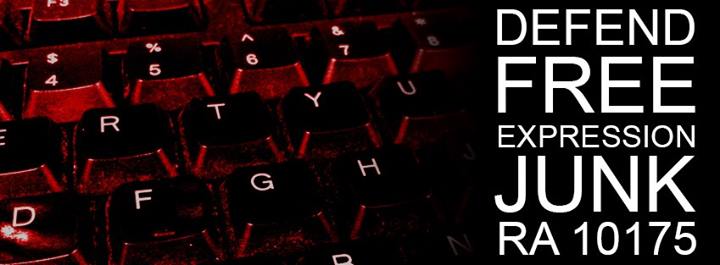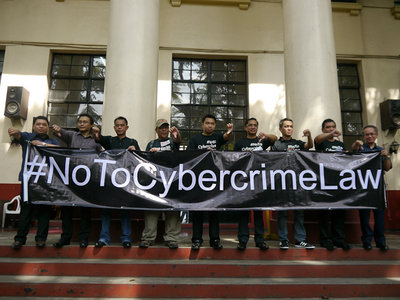NUJP on the Supreme Court ruling on Cybercrime Law
A half-inch forward but a century backward. This best describes the Supreme Court’s decision on the petitions to declare the Cybercrime Prevention Act unconstitutional. For while the high court rightly declared a number of provisions of the statute unconstitutional, it otherwise upheld the law and, worse, online libel, thus adding yet another element — ironically […]
![]() A half-inch forward but a century backward.
A half-inch forward but a century backward.
This best describes the Supreme Court’s decision on the petitions to declare the Cybercrime Prevention Act unconstitutional.
For while the high court rightly declared a number of provisions of the statute unconstitutional, it otherwise upheld the law and, worse, online libel, thus adding yet another element — ironically the very frontier we all believed would be most immune to attempts to suppress free expression — to an offense that former colonizers had, a hundred years ago, declared criminal in nature to stifle dissent, and which succeeding governments have conveniently retained in our Revised Penal Code for the very same reason and as a convenient tool for the corrupt and the inept in power to harass and muzzle those with the temerity to bring their venalities to light.
By extending the reach of the antediluvian libel law into cyberspace, the Supreme Court has suddenly made a once infinite venue for expression into an arena of fear, a hunting ground for the petty and vindictive, the criminal and autocratic.
We can only hope that the Supreme Court will not remain blind to this when appeals to the ruling are filed.
But if it does, then there can only be one response lest we be forced to surrender all our other rights — resistance.
National Union of Journalists of the Philippines (NUJP)



